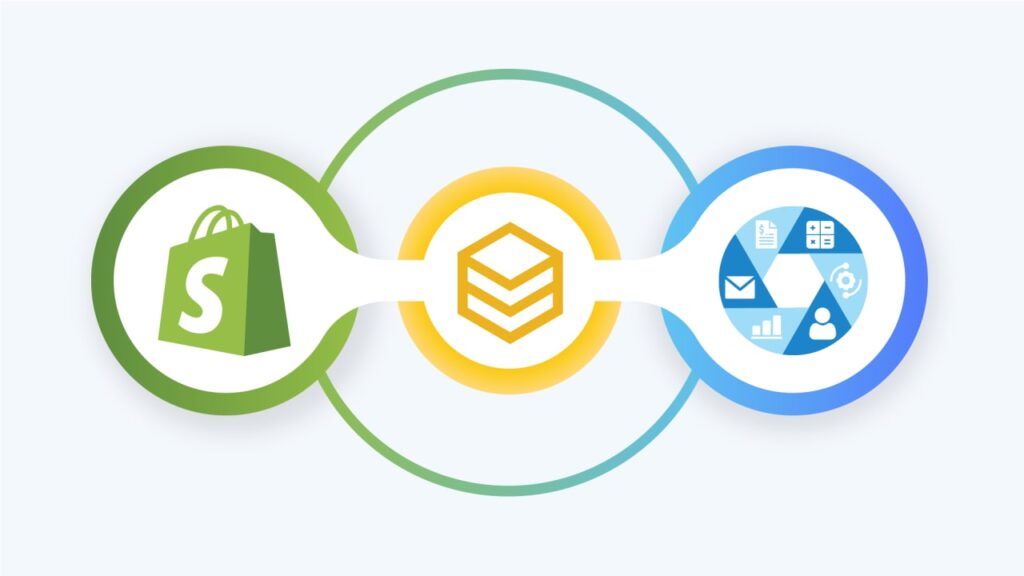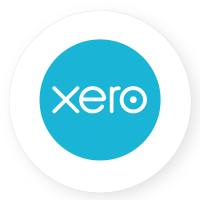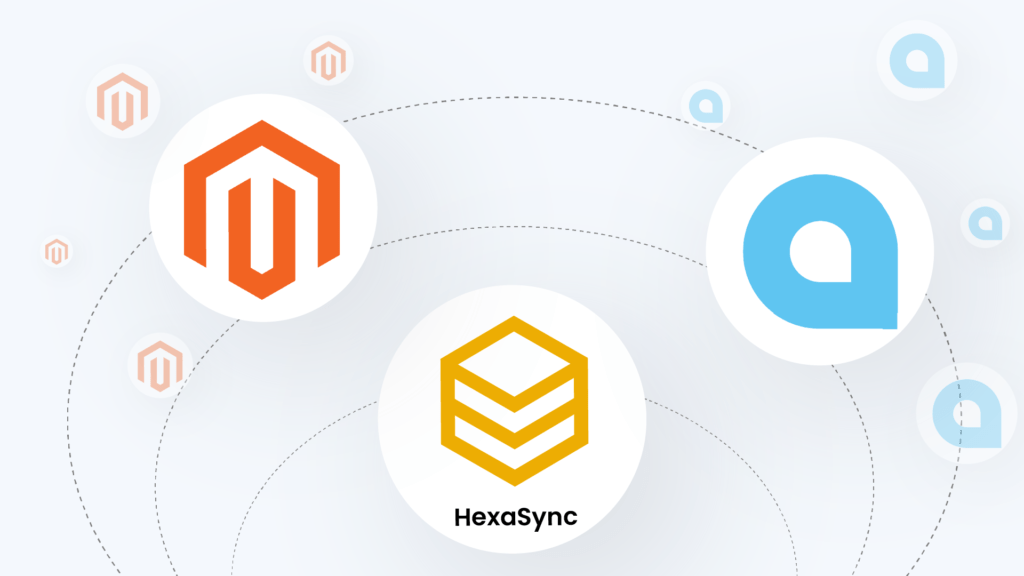In previous posts, we compared Magento against Shopify, one of the most popular eCommerce platforms. Let’s take a look at another famous eCommerce platform, BigCommerce. BigCommerce vs Magento 2, which one is suitable for your firm? Lets’ delve into BigCommerce and Magento comparison to find out the best choice for you.
Table of Contents
BigCommerce vs Magento 2: Introduction
Both BigCommerce and Magento are amazing systems, but there are some key distinctions between them. BigCommerce vs Magento 2 enterprise, one of them may be a better fit for your business than the other, depending on your needs.
What is BigCommerce?
BigCommerce is a software-as-a-service (SaaS) eCommerce platform designed for rapidly expanding businesses. Founded in 2009, BigCommerce provides cloud-based websites, product management, omnichannel, and B2B features to small, medium, and enterprise brands. BigCommerce powers over 150,000 websites that sell items online and process payments.
BigCommerce will set up and host your online store for you. You don’t need an in-house IT team to design or maintain your website because you can choose from pre-built and customized themes. BigCommerce processes payments interacts with popular apps, and manages shipping and fulfillment as an end-to-end solution. You won’t have to rely on as many apps or extensions, which could save you money.
What is Magento 2?
Magento currently powers over 250,000 online stores, so it’s clearly a popular choice. However, it’s an open-source platform, meaning anyone can use it for free, but only if you have ample coding knowledge. If you have your own developers in-house. Your web team can customize your site as needed. You’ll have complete control over design and functionality. Or you can work with an agency to create your website.
Magento or Magento 2 is an updated version that was released in 2015. It brings up to date with the latest development practices with top-notch functions.
Magento 2 allows anyone to alter their website code. This implies they rely on external or third-party developers to create platform improvements and plug-ins. As a result, developers have complete creative control over the design and configuration of a website.
BigCommerce vs Magento 2: An Overview
Popularity
Each platform’s popularity among eCommerce businesses and the general public varies. According to BuiltWith, Magento is used to create 9% of all eCommerce sites. Apparently, compared to BigCommerce, Magento has outperformed in terms of widespread interest on the internet.
According to Builtwith, there are 146,719 websites using BigCommerce and 52,584 currently live websites. (at the published time of this post)
While there are 738,399 websites using Magento and 203,021 currently live websites.
BigCommerce vs Magento 2: What Makes the Difference?
BigCommerce vs Magento 2: Ease of use
Magento
Magento provides merchants with an open-source architecture to operate with, giving you complete control over the design and functioning of your store. It is ideal for complicated, highly customized solutions since it allows you to construct your store from the ground up and construct your own apps and extensions.
Programmers and expert users will find Magento is controllable and reasonably simple to use. Once you’ve downloaded the Magento software, it’ll take some time and effort to set up a whole store utilizing a setup page, depending on your skills. You must be able to write and edit code, and learn the menus, options, and layers, as well as where to find the settings you need.
BigCommerce
It provides a simple, clean dashboard that allows users to quickly get their site up and running. Users are prompted with step-by-step instructions when they first open the dashboard. The platform includes a website builder that allows users to establish and manage stores without having any prior knowledge of web coding.
Bigcommerce is a good fit for beginners and intermediate users because it is simple to use. They provide you with templates, tutorials, tooltips, and an interactive interface to assist in creating your own store. Compare to of Magento, it is well-suited to developers, but it can be difficult to navigate for newbies.
BigCommerce vs Magento 2: Hosting
Magento is a platform that is self-hosted. That means you’ll have to find acceptable premium hosting for your website. However, it allows you greater flexibility in terms of selecting a server and making adjustments if you need to increase website performance.
BigCommerce, on the other hand, is a hosted service. So you won’t have to look for anything else, but you’ll have less influence over your situation.
BigCommerce vs Magento 2: Pricing
BigCommerce
BigCommerce has a free 15-day trial and 4 paid tiers, Standard, Plus, Pro, and Enterprise. The starting pricing for BigCommerce is $29.95, with a processing fee of 2.9 percent + $0.30 for every transaction. The pro plans are automatically enrolled in BigCommerce stores that sell more than $125,000 per year. The cost is also determined by the number of orders placed. Low-cost plans come with fewer features. The base subscription, for example, does not have an abandoned cart saver, fraud monitoring, product filtering, and other features that you may require.
Because BigCommerce is a software as a service (SaaS) platform, your infrastructure and managed support costs are covered. As you customize the platform to your individual business needs, you will incur design, development, and app integration charges.
Magento
Compare to Bigcommerce, the cost of setting up and running a Magento eCommerce site is determined by the size and complexity of your company. Magento has one alternative, Magento Open Source, which is available for free download. While the program is free, you will have to pay for web development, hosting, and other essential integration charges in order to establish and manage your site.
If you want to run Magento Enterprise Edition, also known as Magento Commerce Cloud, it combines the license and hosting at an annual fee and also offers a monthly subscription option.
The cost depends on your business requirements. You’ll need to request a personalized quotation to learn about Magento pricing that is specific to your company. For example, by the average order value and annual online income of your business. This might range from roughly $22,000 per year to $125,000 per year.
Overall, compared to BigCommerce, running a Magento site is less expensive. When the software’s monthly pricing and transaction fees are taken into account, Magento costs can be drastically reduced. BigCommerce may still be the better option for your company, but you must consider these costs to determine your overall cost of ownership.
BigCommerce vs Magento 2: Theme
BigCommerce now offers 12 free themes and 100+ premium themes ranging in price from $145 to $235. With the support of BigCommerce’s front-end development framework, all of these themes are mobile responsive and easy to adjust.
Magento has a total of 11 theme choices, one of which is free. Paid choices range in price from $30 to $499 on the marketplace, with some of them being entirely mobile-responsive. You may also build your theme from Magento, but this needs extensive coding skills, or you may hire developers to do it for you.
You can find a total of 526 Magento themes and templates and 89 BigCommerce themes on Envato Market. There are many themes from all kinds of industries for you to choose from.
Both Bigcommerce and Magento offer unique themes and templates, but Magento has more capabilities and add-ons, making it easier to update and customize your site to your needs.
Magento is primarily meant to give developers and designers additional customization options; however, these features come at a cost, and Bigcommerce support is available to teach you how simple it is to make these modifications without any technical experience.
BigCommerce vs Magento 2: Features
B2B
Compare BigCommerce and Magento in terms of features; it is noticeable that Magento Commerce comes with everything you’ll need to manage numerous brands, channel partners, and critical accounts on B2B eCommerce sites. B2B customers can control their own accounts by creating different levels of buyers with different responsibilities and rights. Magento also gives users the option of customizing their online experience by allowing them to apply alternative pricing lists and catalogs.
Customers can look at information about prior orders, track quotes, manage their credit, see real-time inventory levels, and place orders online by inputting SKUs or uploading CSV files, among other things. All of this reduces the user’s need for assistance. Magento provides customers with a really seamless experience. The main drawback is that this is only available with Magento Commerce.
BigCommerce is one of the greatest B2B solutions available. They enable customers to create attractive site designs for big catalogs using built-in connectors and extensions, as well as customer and pricing segmentation down to the SKU level. Users can also leverage automatic customer and pricing segmentation, purchase orders, net payment terms, user roles, and connections with key ERP and CRM systems to improve their B2B eCommerce experience.
Furthermore, through a native interface with ShipperHQ, they provide superior B2B shipping rates as well as one-click, pre-built tools such as instant quote-generating, user permissions, and re-ordering. BigCommerce’s customer experience is at the top of its priority list.
Multi-store
Magento allows users to create and access several stores using different URLs in the same installation. The multi-store installation allows multiple stores to share the same backend, making administrative work much easier.
BigCommerce offers multi-currency, multi-language, and multi-brand solutions. While multi-storefront functionality is currently being tested with a group of beta participants, at the time of publishing this post. They will release this feature in the future but the time is uncertain. Currently, for customer segmentation and fulfillment, you will need an integration solution
Point Of Sale
Although BigCommerce and Magento don’t have POS as their native feature. Both BigCommerce and Magento offer integrations with leading point of sale solutions. There is a wide range of different POS systems that integrate with Magento and BigCommerce. You can purchase a POS integration extension in the Marketplace. The second is by purchasing a one-time software license that comes with a more expensive price tag than the first option and a setup fee. In many cases, Beehexa offers a POS integration solution for the system you will need to use.
SEO & Marketing
Magento has a number of useful SEO settings that allow merchants to improve their search engine presence. Merchants can incorporate a variety of third-party modules into their stores for more advanced functionality.
Magento SEO features:
- Google sitemap creation and sitemap auto-generation
- SEO-friendly URLs with rewrite control
- Metadata editable at both product and category levels
- Auto-generated popular search terms
Magento Commerce Edition, in particular, takes marketing to the next level with features such as Gift Registries, Private Sales & Events, Rewards & Loyalty, and Related Product Rules. Merchants can use these parameters to develop a variety of marketing actions that meet customers’ expectations.
To execute excellent SEO setups for your pages and headlines, BigCommerce provides several SEO options like a robots.txt file and a Google sitemap. Store owners who use BigCommerce also gain access to a service called SocialShop, which allows them to promote their products on Facebook, Pinterest, and Twitter.
BigCommerce SEO features:
- Optimized page architecture using proper HTML elements and hierarchy
- Microdata or “rich snippets” built into product pages to enhance search result listings
- Auto-populated SEO-friendly URLs for product, category, and other pages
- Automatic 301 redirects and URL rewrites
Magento is the second-best eCommerce platform for SEO, according to a ranking based on the key SEO ranking variables, with BigCommerce coming in fifth. Magento is the clear winner in this study’s SEO capabilities evaluation due to its huge set of marketing tools.
The mentioned features above are basic. Check out the full Magento Commerce features list.
Each of these systems will provide you with a lot more than just basic eCommerce capability. Instead, especially if you offer B2B or B2C, merchants should concentrate on their specific company demands. You’ll want to be sure that the platform you choose provides the specific features you require.
Apps and Extensions
Both Magento and BigCommerce have powerful functionality out of the box and can be readily integrated with a variety of extensions and third-party solutions. On the Magento marketplace, there are over 3900 extensions that integrate easily with the Magento backend. The BigCommerce app marketplace is smaller in comparison to Magento’s marketplace, with almost 1000 extensions.
Perhaps the most significant distinction is that BigCommerce automatically installs its apps on your store as soon as you download them, and they handle all subsequent upgrades and fixes for you. Magento compare to Bigcommerce has a more complex installation process, and you’ll be responsible for maintaining and upgrading your own extensions as needed. However, if you require a specific solution, the platform allows you to create and install your own custom extensions. BigCommerce has a more limited yet user-friendly method, whilst Magento requires more responsibility in exchange for that extra optimization.
Community and Support
Magento has a larger network of community, developers, and Magento partners when it comes to the need for assistance. Because of its popularity, businesses that use this platform can easily get community or official help. Users can also reach out to free and trusted sources like Magento DevDocs and Magento Help Center to search for available written documents. Magento has a thriving community because of its large user base, which has grown over the course of a decade. Magento offers a community of developers who are willing to answer concerns and work to improve the platform. Users can also get help from the extension developers who sold them the extensions.

BigCommerce users, like Magento users, have the option of searching the BigCommerce Help Center for conversations on specific problems. BigCommerce also provides 24/7 official assistance by phone, email, or live chat with support experts who are well-versed in the platform. Another way is to post a question to the forums like BigCommerce Community, where many members can share the solutions with you.
Partner Program
Both Magento and BigCommerce work with design agencies, developers, and solution providers to ensure that customers get the support they need to get the most out of their platforms.
A global community of Solution Partners, Technology Partners, and Community Insiders is ready to help with a wide range of use cases and provide experience in everything from site design, installation, and support to utilizing today’s most innovative business technologies.
Compare to Magento, BigCommerce does have a bigger partner community due to the number of partners it has. Still, both programs provide partners with advantages such as enhanced exposure, new customer access, and training and enablement assistance.
BigCommerce vs Magento 2: Which is Ideal for your Business?
When choosing BigCommerce vs Magento 2 enterprise, keep in mind the size of your business, the speed with which it can scale, unique platform features, and your monthly budget. For example, if you just start your business and need to get up and running quickly, Magento may delay your launch, whereas BigCommerce can start selling products the same day you sign up.
Small and medium-sized enterprises should use BigCommerce. The monthly fee is reasonable, and the platform includes enough functionality to set you apart from the competition and support your expanding company.
Compare Bigcommerce and Magento Enterprise, Magento has endless possibilities if you need an eCommerce platform that can support enterprise capabilities and comprehensive customization.
Conclusion
After comparing the two platforms: BigCommerce vs Magento 2 enterprise, both have their pros and cons in terms of different aspects. We hope that you can find the best one for your business.
Regarding the BigCommerce vs Magento 2 POS integration solution, please contact us for more detail and excellent service.















































